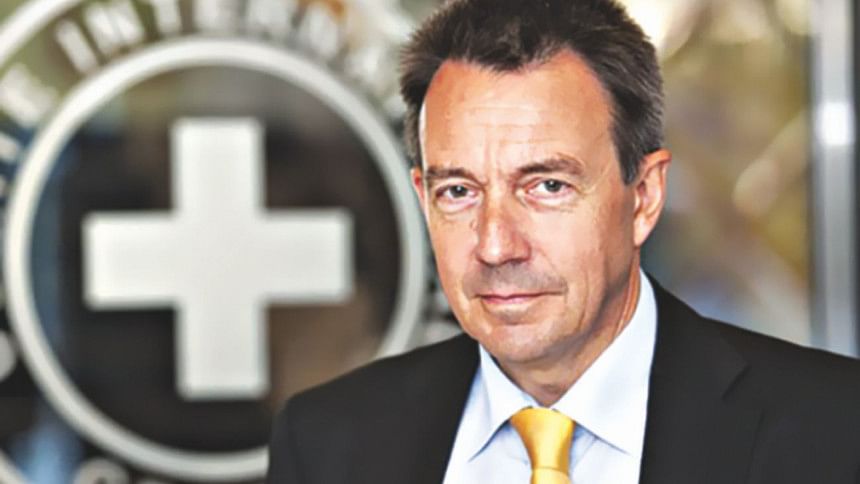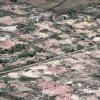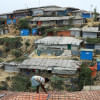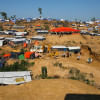Repatriation of Rohingyas: Condition still not conducive

Red Cross President Peter Maurer has said there are serious doubts about the conducive conditions in Myanmar's Rakhine state for safe, voluntary and sustainable repatriation of Rohingyas from Bangladesh.
“The conditions are simply not there for a large number of people to return home,” he said at a press conference at the Dhaka office of the International Committee of the Red Cross (ICRC) yesterday following his weeklong visit to Rakhine and Rohingya camps in Cox's Bazar.
During his stay in Myanmar, he met State Counsellor Aung San Suu Kyi, President U Win Myint, Senior General U Min Aung Hlaing. In Bangladesh, he had meetings with Prime Minister Sheikh Hasina, Foreign Minister AH Mahmood Ali and Home Minister Asaduzzaman Khan.
He said conditions for return of refugees would require not only humanitarian and mitigating activities, but also effective political steps towards ensuring freedom of movement, access to basic services and freedom to undertake economic activities in Rakhine.
“Most importantly, trust in security arrangements for returnees [must be ensured],” he said.
However, Maurer was convinced that the Myanmar authorities have recognised the problem and have the political will to address it.
Over 700,000 Rohingya have escaped a brutal military crackdown in Rakhine since late August last year, and joined over 300,000 other Rohingyas, who had fled previous waves of violence in Myanmar since 1980s. They have been denied citizenship since 1982.
Though Myanmar signed a repatriation deal with Bangladesh in November last year amid global criticism, the repatriation has not begun yet.
The United Nations, which signed an MoU with Myanmar early last month on preparing favorable conditions for the return of refugees, also said the situation in Rakhine was not conducive for the return.
Rohingyas demand guarantee of citizenship in Myanmar, return to their own houses, not to the temporary shelters, and security in Rakhine under UN arrangement, but the demands seem elusive until now.
Maurer said those sheltered in the Cox's Bazar camps live in shocking conditions. With the monsoons arriving, their lives would only get worse, he added.
Describing his visit to a village in Rakhine, he said less than a quarter of the population remains there, only 2,000 of the original 9,000 villagers.
“I spoke with all communities -- Muslim, Buddhist and Hindu. They described how the social fabric and local economy have been destroyed, making people entirely reliant on humanitarian aid,” Maurer said.
He said the Red Cross was doubling the distribution of food rations to help communities during the monsoon season as many areas become inaccessible.
“But humanitarian assistance alone will not solve this problem. A better future for the people here will need inclusive political solutions, environmentally sustainable economic investment and a strong commitment to international humanitarian law and human rights.”
The ICRC chief said they've seen excellent recommendations from the Kofi Annan-led commission and his organisation supported those. The humanitarian organisations were doing their best to alleviate the suffering of refugees, he added.
“But so far, despite all the talking and all the efforts, too little has changed for the people there…they cannot stay and they cannot return.”
He recommended engaging Rohingyas in productive and cash-based activities instead of only giving relief materials to them.
Maurer left Dhaka for Switzerland later yesterday.

 For all latest news, follow The Daily Star's Google News channel.
For all latest news, follow The Daily Star's Google News channel. 








Comments